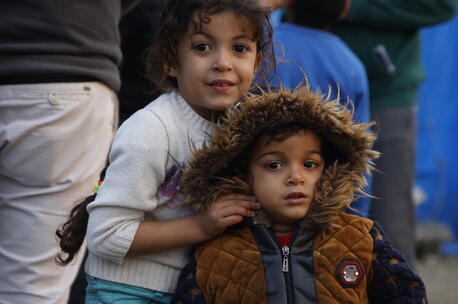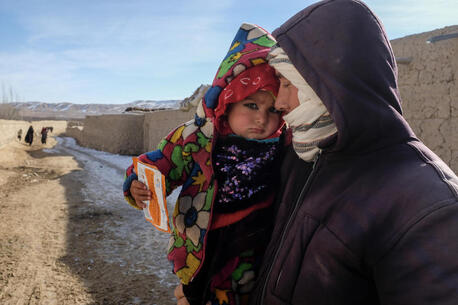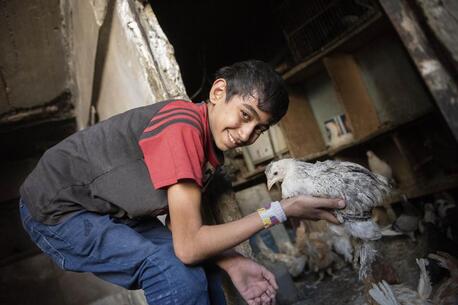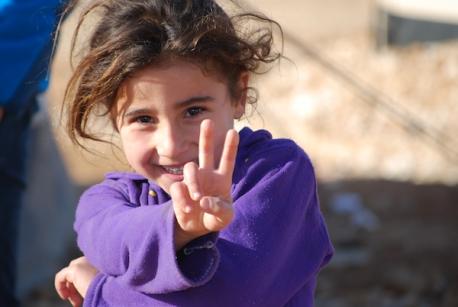
Caryl M. Stern on UNICEF Visit to Syrian Refugees in Jordan
U.S. Fund President and CEO Caryl M. Stern visited Jordan in mid-December, spending time with Syrian refugees at several UNICEF-supported sites, including the Za’atari camp for Syrian refugees.
UNICEF USA spoke with her on return about the situation for Syrian families and children in Jordan and UNICEF's work to assist them.
What are some of your strongest impressions from the trip?
Caryl M. Stern: The desert is bitterly cold. We were there for the first winter storm. Schools were closed. People didn't go out, and I just realized how cold the desert is and how many kids are walking around with no shoes.
It's a rocky terrain, not sandy, and it's raining and snowing. Everything turns muddy. Kids have to walk everywhere barefoot. It's horrible. We've got to get them boots.
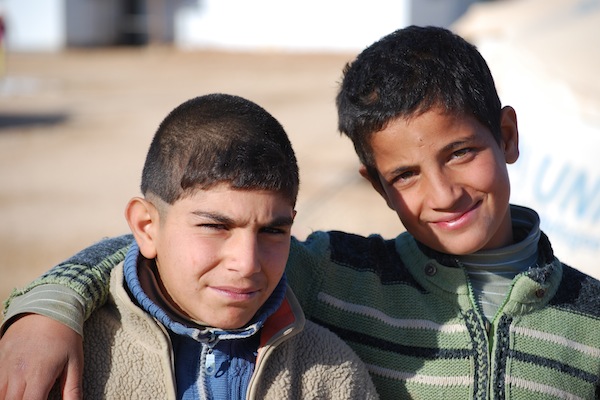 Two Syrian boys at the Za’atari refugee camp in Jordan. © UNICEFUSA/Carbonell
Two Syrian boys at the Za’atari refugee camp in Jordan. © UNICEFUSA/CarbonellWhat moved you the most?
Stern: I met a man who was a prominent lawyer. Two years ago, when people were protesting, he made a decision to defend the protesters. So they bombed his house, and when they bombed his house, his daughter was severely injured. Her skull was fractured, and nobody would help him because he was loyal to the wrong side.
“Do you know what it's like to be a father and not be able to take care of your child?”
He put his daughter on his shoulders and walked for three days, through shelling, to get her over the border. She's bleeding, in excruciating pain, barely conscious when they finally made to Jordan. There, she finally got medical assistance — until they ran out of money.
People from the center where I met him found him and his daughter living on the street. I watched this man start to cry while he's telling me his story. He kept saying "I was a lawyer, I lived in a house, I went to work, my children went to school, and they found me living on the street ... Do you know what it's like to be a father and not be able to take care of your child?"
It made me realize that tomorrow, that could happen to me, to anyone, your whole life, everything you have, could be gone.
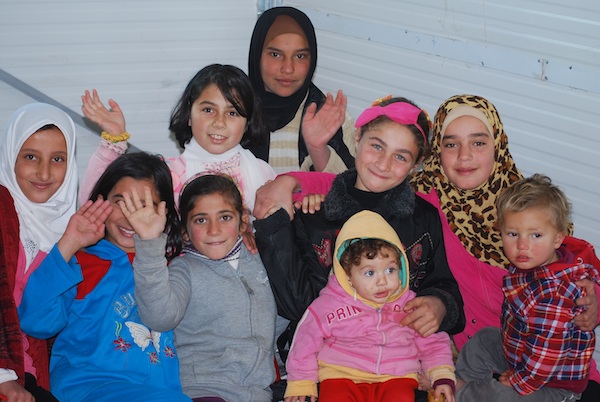 Syrian children at the UNICEF-supported Za’atari refugee camp in Jordan. © UNICEFUSA/Carbonell
Syrian children at the UNICEF-supported Za’atari refugee camp in Jordan. © UNICEFUSA/CarbonellWhat struck you about the children you met?
Stern: Their attitude. We watched older kids, 12 and 13 years old, at a UNICEF Child Friendly Space at the Za'atari camp. They were being asked to draw places in the camp where they felt safe. They named the mosque and the clinic, and this Child Friendly Space. Then they were asked to pick a safe partner, someone to take to a safe place if they needed to move quickly.
One group of about six kids — and this blew me away when they said this — said we're not picking partners.
We're all going, we're a group, one for all and all for one. We came across this attitude again and again. They were giving out nutritional biscuits, and there's a little boy. He's like three years old and these kids are hungry — and the first thing he does is break his biscuit in half and give it to a baby that another girl was carrying. That's the mentality, they have nothing, but they're taking care of each other.
How important are the UNICEF Child Friendly Spaces?
Stern: Very. We met a family with five daughters. The mother explained how she can't let her daughters go to the communal bathrooms by themselves. They're not safe. At night, she won't let them go at all, but she called the Child Friendly Spaces a blessing. She can let her children go, and she doesn't have to be with them.
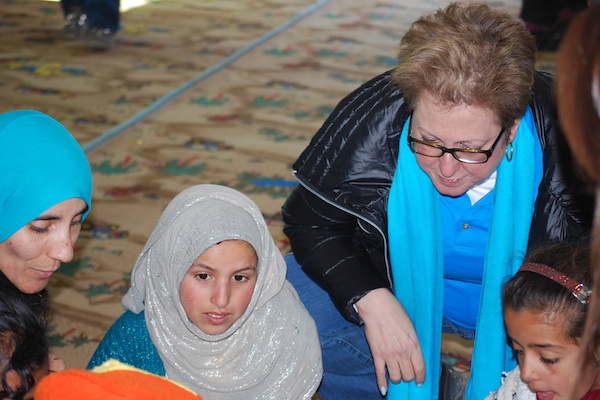 U.S. Fund for UNICEF President and CEO Caryl M. Stern meets with Syrian refugee families and children in Jordan. © UNICEFUSA/Carbonell
U.S. Fund for UNICEF President and CEO Caryl M. Stern meets with Syrian refugee families and children in Jordan. © UNICEFUSA/Carbonell
